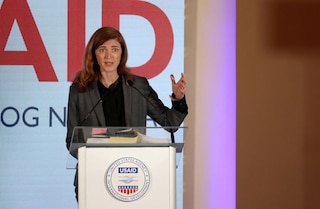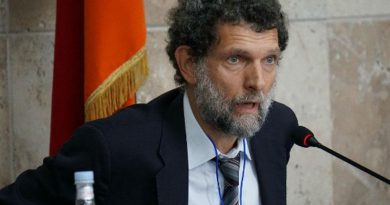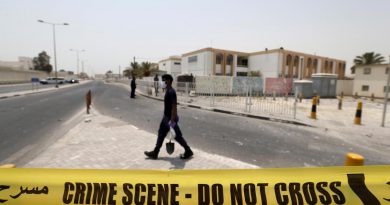U.S. calls on Bosnian leaders to stop divisive rhetoric, actions
Sarajevo (Reuters) – The United States on Friday called on Bosnian rival ethnic leaders to put aside divisive rhetoric that threatens the volatile country’s economy and future, saying Washington was ready to impose more sanctions on those obstructing stability.
“Talk of war is making it incredibly difficult … to attract investment from the international community … and to build a strong and enduring economy that creates jobs,” Samantha Power, the administrator of the U.S Agency for International Development (USAID), said during a news conference in Sarajevo.
Bosnia’s political crisis, the country’s worst since its 1992-1995 war, erupted after Bosnian Serbs blocked decision making in national institutions and launched a process to withdraw from the state armed forces, tax system and judiciary.
“The United States is watching and is very, very concerned about the political crisis, political blockade and obstructionism that occurred,” Power said.
She is the first U.S. official to visit Bosnia after the United States earlier this month slapped fresh sanctions on Bosnian Serb leader Milorad Dodik, accusing him of corruption and threatening Bosnia’s stability and territorial integrity.
Power called on Bosnian politicians to put aside divisive rhetoric that brings into question the durability of 26 years of peace.
“President Dodik particularly has created a climate of tension, one that is vulnerable to miscalculation and the risk of escalation,” she said. Dodik is the Serb member of the country’s tripartite presidency.
Power said that pulling the Serb Republic out of the national institutions, as Dodik has threatened to do, would only hurt the region economically.
The U.S.-brokered Dayton peace agreement in 1995 ended the Bosnian war, splitting the country into two highly autonomous regions, the Orthodox Serb-dominated Serb Republic and a federation dominated by Catholic Croats and Muslim Bosniaks. The two regions are linked via a weak central government.
Dodik has long advocated the secession of the Serb Republic and its eventual unification with Serbia, the wartime patron of Bosnian Serbs.
Power said the United States was considering more sanctions against the officials who were involved in corrupt acts and destabilizing the country. USAID has invested about $2 billion in Bosnia since the end of its war.



